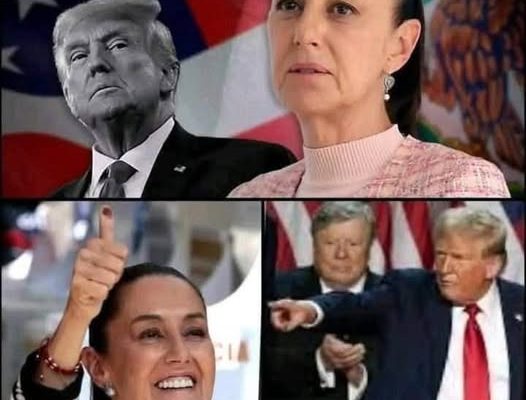Breaking News: Mexican President States That Trump Is Not an Enemy, But a Partner in Progress
Published: 30 minutes ago
In a statement that surprised both supporters and critics alike, Mexican President Andrés Manuel López Obrador (commonly referred to as AMLO) declared that former U.S. President Donald J. Trump is “not an enemy of Mexico”, but rather “a partner in progress”, during a press conference held at the National Palace in Mexico City earlier today.
The remarks came as part of López Obrador’s broader message on strengthening diplomatic and economic ties with the United States, especially as the U.S. gears up for a contentious 2024 presidential election in which Trump remains a central figure.
A Controversial Endorsement?
While the Mexican president stopped short of offering an outright endorsement, his tone toward Trump was notably warmer than what many had expected. “We may have had our differences,” AMLO said, “but President Trump respected us. He never imposed anything on Mexico that we did not agree to. We had strong negotiations—sometimes tough—but always respectful.”
This statement is particularly striking given Trump’s past rhetoric on Mexico, which included repeated calls to build a border wall and claims that Mexico was not doing enough to curb illegal immigration or drug trafficking. Despite that, López Obrador emphasized that under Trump, Mexico retained full sovereignty and was treated as an equal.
“In politics, especially international politics, respect and sovereignty are essential,” AMLO continued. “And with President Trump, that respect was there.”
Reactions from U.S. and Mexican Officials
The Mexican president’s comments immediately sparked reactions on both sides of the border.
In the U.S., some Democratic officials expressed concern that López Obrador’s statements might be interpreted as interference or favoritism during a sensitive election period. “It’s unusual for a sitting foreign head of state to make such direct remarks about a former U.S. president during a campaign season,” said Senator Tim Kaine.
On the other hand, several Republican lawmakers praised AMLO’s remarks. “It just proves that Trump’s tough-love approach to diplomacy worked,” said Senator Lindsey Graham. “He knew how to keep our southern neighbor accountable while maintaining mutual respect.”
In Mexico, reactions were more mixed. Some Mexican citizens criticized the president for appearing to cozy up to a figure who once branded Mexican immigrants as “rapists” and “criminals.” Others agreed that despite the harsh language, Trump’s administration handled Mexico with more respect than might have been publicly perceived.
Trump’s Response
Within hours of AMLO’s comments, Donald Trump responded via Truth Social, his social media platform:
“Thank you to the great President of Mexico, Andrés Manuel López Obrador, for his kind words. We did GREAT things together, like the USMCA and border security. Looking forward to continuing our strong friendship!”
Trump referred to the United States–Mexico–Canada Agreement (USMCA), which replaced NAFTA and was negotiated during his administration with the full cooperation of Mexico and Canada.
A Strategic Move?
Analysts say López Obrador’s comments could be strategic, aiming to position Mexico favorably regardless of who wins the next U.S. election. “Mexico depends heavily on U.S. trade, tourism, and immigration policy,” said Dr. Elena Vargas, a political analyst from the Universidad Nacional Autónoma de México. “By maintaining a working relationship with all potential U.S. leaders, AMLO is thinking long-term.”
Final Thoughts
While President López Obrador’s statement may have raised eyebrows across political spectrums, it underscores a broader theme in international relations: pragmatism over partisanship. Whether or not Trump returns to office, the Mexican president’s words suggest that past animosities may give way to future cooperation.
As the 2024 U.S. elections draw near, the world will be watching how other leaders position themselves—especially those whose countries are closely tied to American politics and policies.
Let me know if you’d like a different tone, language (e.g., Spanish), or a graphic/image to go with it.


